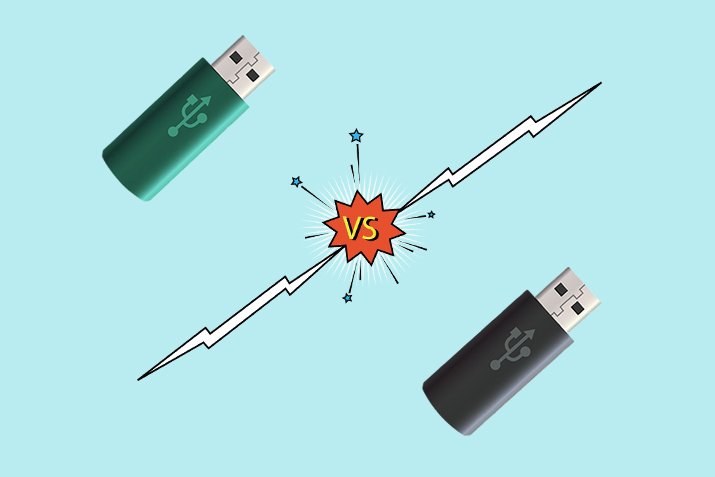Is Big Data Dangerous? Everything You Need to Know!

The actions the businesses or customers take have a path. Their interaction is sometimes called the trial, which is available offline and online. The logic is similar to museums and other preservations where humans have been leaving behind their histories for the next generations to study. When the trends are digitalized constantly, the accumulation is called Big Data.
The internet has billions of users who are active day and night. They are interacting with the online world, whether for business or personal use. In simple terms, Big Data means humongous volumes of data that have not yet been processed.
If you are still unable to grasp the concept of Big Data, then you have come to the right place. Let’s begin with its definition and move forward with the discussion by talking about its associated concerns.
Time to Define Big Data!
John Mashey gave birth to Big Data in the early 90s. However, the concept started to gain traffic in the early 2000s. One of the reasons Big Data gained influence is the Internet of Things.

Big Data grew because of the constant increase in the use of devices that are inter-connected through social media. The Internet of Things, such as phones, computers, and tablets, is very fast.
Click Here on How to Secure Devices From Outside Intruders.
Top 5 Ways Big Data is Dangerous
1. Shut down or prosper
Is Big Data dangerous for businesses? The answer is a double-edged sword, meaning its implications are good and bad. For a few companies, the change is easy to adapt. It offers excellent expanding opportunities. The companies will expand exponentially. However, the story is not the same for everyone.
Other companies will struggle to survive and eventually sit down. For example, Netflix closed video rental shops. Uber closing tax services is also another example of “Big Data dangerous” overtaking businesses. Unfortunately, already established businesses must adapt to the newer technology, or they face severe disruptions.
2. Tracks all movement
Another argument why Big Data is dangerous is fear because it can track everything. And that is not an understatement. Big Data will collect information about our personal and professional lives. In addition, it will also have information about businesses, attitudes, and surroundings. When researched, the Internet of Things is a truly scary place.
Even though Big Data is beneficial for companies who can use it to research their market presence and stock, its thirst to learn about the employees is overstepping. The same concern is about the customers as well. Many question how Big Data benefits from learning sensitive information such as health, spending habits, and social interaction. Unfortunately, the technology is advancing without stopping.
3. Privacy laws
Thirdly, when there are so many concerns about how Big Data is dangerous, privacy laws are not updated to counteract the concerns. The laws do not talk about the restriction. Furthermore, the types of data being collected do not show a proper trail. No ownership is mentioned, or the individuals involved in the process.
With so many questions, the answers are less likely to be believable. When Big Data is collected, it is distributed among the industries according to different classifications. The parameters sometimes lead to discrimination, which creates bias.
4. Cyber attacks
Many individuals are still oblivious to Big Data’s dangerous concerns. When everything is stored in the cloud or a remote location, the data is vulnerable to attacks. Moreover, the information can be useful for unfair financial gains. The circumstances are similar to when someone had to steal the laptop to access the hard drive.
Hackers are criminals who are constantly attacking data reserves for exploitation. Companies also fear the security risks because the complaints are growing. If accessed, the malicious individuals can bring utilities and infrastructure to a complete halt. The unlawful access to Big Data has the power to weaken economies and stop everything.
5. No consent to data collection
When individuals research Big Data, dangerous consequences involve spying. Individuals are starting to realize the cameras in laptops and technology are used to spy on people without their consent. Big Data is taking it further. China Social Creditor Score is a ranking system that mentions what an individual can or cannot say. The result also influences everything they know personally or on social media.
Intelligence agencies from around the world are using backdoor channels to collect information for internet service providers and IP addresses. Unfortunately, no one is willing to talk about its implications on national security. Thus, it is becoming necessary to talk about privacy and resolve complaints sooner rather than later.
How to Reduce “Big Data Dangerous” Concerns?
Big Data is clearly very dangerous. However, its potential to become positive is very convincing. Here are some impartial suggestions
Stay aware of security concerns
If you are a collector of Big Data, it is essential to install security measures that keep intruders away from the information. When the data is organized, it must be protected at all costs. Even though companies implement front-door procedures, the back door is often overlooked. Therefore, testing the security protocols is advised for the information to stay safe.
Eliminate unwanted data
If the companies fear a data breach, then they must not have sensitive information that attracts hackers. Unfortunately, companies keep collecting information that is useless to them. The assumption is they may need it in the future. However, the data continues to be collected. Companies are encouraged to perform audits regularly to delete unwanted data. It results in focused analytics and reduces threats.
Complains
Of course, Big Data is dangerous because compliance is absent. Unfortunately, only 58% of businesses are complying with relevant laws. The lax attitude to protect data in terms of investment and security will overcome the concerns. Therefore, governing authorities must implement essential guidelines.
What are the potentials of Big Data?
Enough of the negativity and how Big Data is so dangerous. Even though it has risks, there are two sides to a coin. Here is how the society may benefit from its use in the future
- Big Data will offer robust insight into worldwide operations. It will force businesses to assess matters from multiple perspectives before making the final decision.
- Secondly, Big Data will eliminate privacy issues in a self-governing manner. Big Data concerns motivate companies to think ahead and combat security problems before they surface.
- Thirdly, monopolies and corporate giants abuse Big Data. The market must work together to eliminate concerns about data loss.
- Furthermore, use Big Data to gain further insight. We must identify its resources to eliminate unnecessary interference. Furthermore, bad or irrelevant data must also be eliminated.
- Big Data can involve an oath that mentions the ethical guidelines. Proper safeguards must be put in place, which are updated and reviewed regularly.
Is Big Data dangerous?
The truth is Big Data is highly dangerous in the wrong hands. It can lead to corporate wars and ethical non-compliance. If this happens, customers distrust companies and will never shop from them again. Therefore, similar to an NFT investment strategy, Big Data must also be regulated properly.







